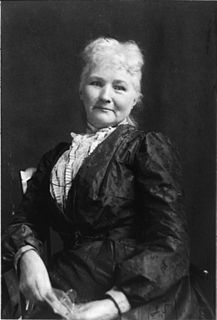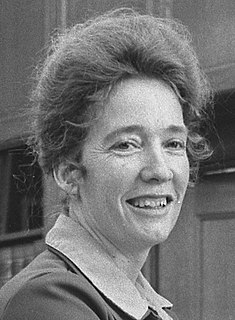A Quote by Hilaire Belloc
If we do not restore the Institution of Property we cannot escape restoring the Institution of Slavery; there is no third course.
Related Quotes
The inconsistency of the institution of domestic slavery with the principles of the Declaration of Independence was seen and lamented . . . no insincerity or hypocrisy can be fairly laid to their charge. Never from their lips was heard one syllable of attempt to justify the institution of slavery. They universally considered it as a reproach fastened upon them by the unnatural step-mother country and they saw that before the principles of the Declaration of Independence slavery, in common with every other mode of oppression, was destined sooner or later to be banished from the earth.
The state should never have instituted and enforced legal property rights in persons, and should not have been in the business of returning runaway slaves to their "rightful owners." The whole institution of property in human beings was an unjust social institution and should not have been maintained in existence. It is this sort of thought that I'm appealing to at the supranational level.
Your ancestors fought for you to have a share in that institution over there. It's yours. See the school board, and every Friday night hold your meetings there. Have your wives clean it up Saturday morning for the children to enter Monday. Your organization is not a praying institution. It's a fighting institution. It's an educational institution along industrial lines. Pray for the dead and fight like hell for the living!
I'm not sure that it's right to view this as excluding a particular group. When the institution of marriage developed historically, people didn't get around and say, 'Let's have this institution, but let's keep out homosexuals.' The institution developed to serve purposes that, by their nature, didn't include homosexual couples.
Slavery's crime against humanity did not begin when one people defeated and enslaved its enemies (though of course this was bad enough), but when slavery became an institution in which some men were 'born' free and others slave, when it was forgotten that it was man who had deprived his fellow-men of freedom, and when the sanction for the crime was attributed to nature.
But the instinct of hoarding, like all other instincts, tends to become hypertrophied and perverted; and with the institution of private property comes another institution-that of plunder and brigandage. In private life, no motive of action is at present so powerful and so persistent as acquisitiveness, which unlike most other desires, knows no satiety. The average man is rich enough when he has a little more than he has got, and not till then.





































